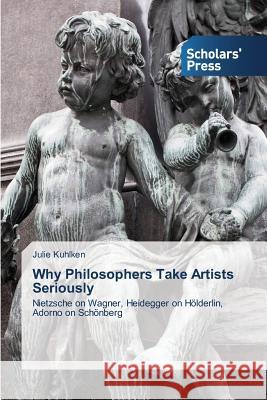Why Philosophers Take Artists Seriously » książka
Why Philosophers Take Artists Seriously
ISBN-13: 9783639518832 / Angielski / Miękka / 2013 / 252 str.
Within the history of philosophy, it is generally acknowledged that art has played a uniquely formative role in the development of philosophical practice. Many trace this tendency back to Plato, and his ambiguous reliance on art as both a model for his own practice, as well as a threat to the harmonious functioning of the Republic. What has received less attention is the Kantian reversal of the Platonic dismissal of artists, and how it has generated a rich philosophical literature, of which the three pairs considered here are illuminating instances. These three are Friedrich Nietzsches lifelong engagement with Richard Wagner, Martin Heideggers assimilation of Friedrich Hölderlins poetry within his philosophical thinking, and Theodor Adornos analysis of Arnold Schönbergs music as exemplary for our understanding of contemporary society. In its first half, the book uncovers the weakness of approaching these relationships according to the romantic conception of artistic practice. In the second, it proposes a robust conception of exemplarity, which allows us to rethink the division between theory and practice and open up to new ways of integrating action and thought.











